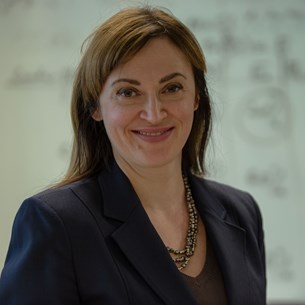Meeting
2021 ASCO Annual Meeting

University of Rochester Medical Center, Rochester, NY
Katia Noyes , Alaina Zapf , Rachel Depner , Tessa Flores , Alissa Huston , Hani H. Rashid , Demetria McNeal , Olle Jane Sahler , Louis S. Constine , Fergal J. Fleming
Background: Cancer survivors experience significant stress throughout cancer treatment and especially during transition back to normal life. These stressors are particularly severe for rural or socially disadvantaged patients with limited access to care. Improving their problem-solving skills is known to help patients make reasoned and timely decisions about survivorship care that reduce stress and enhance quality of life, physical and social functioning, and overall cancer prognosis. This pilot implementation study examined barriers to and facilitators of providing Problem-Solving Skills Training (PSST) to adult cancer survivors and their caregivers in community settings. Methods: Patients (n = 50) who completed their definitive cancer treatment and cancer survivorship visit within the previous 6 months were recruited from two regional cancer centers and affiliated community cancer clinics. Patients with NCCN distress level >2 were randomly assigned to either care as usual (CAU) or 8 weekly PSST sessions using the Bright IDEAS system of teaching problem solving. Training was offered by a trained therapist in person at the patient’s preferred location or remotely. Patients were invited but not required to include a supportive other (SO). Patient outcomes were assessed at baseline (T1), the end of the intervention/3 months (T2), and 3 months post intervention/6 months (T3). We examined patient and caregiver preferences for mode of communication and therapy, barriers to PSST participation, and adherence rates. An independent consultant interviewed patients and caregivers about factors that promote or inhibit intervention sustainability and its wider adaptation and usefulness. Results: Average age of the participants was 63 years (45-87) with gender, racial and ethnic distributions representative of the local population (64% women, 88% white). Women were 80% less likely to include a SO than men. Among the third of the patients recruited fully remotely, 50% preferred receiving consent materials via regular mail and 18% preferred electronic communication. Among the two patients lost to follow-up before PSST completion and one patient who withdrew despite reporting significant distress, none had a SO in the study. Seventy-six percent of the PSST patients completed the training (defined as > 6 sessions). After study completion, all patients and caregivers reported high satisfaction with Bright IDEAS and high probability of continuing to use the skills learned. Conclusions: Despite significant distress and numerous reported social challenges, patients and caregivers in the PSST arm demonstrated high adherence, skill retention and overall satisfaction. Future research should be tailored to accommodate the preferred type of communication and recruitment approaches of the targeted population and emphasize the positive role of informal caregivers. Clinical trial information: NCT03567850
Disclaimer
This material on this page is ©2024 American Society of Clinical Oncology, all rights reserved. Licensing available upon request. For more information, please contact licensing@asco.org
2021 ASCO Annual Meeting
Poster Session
Care Delivery and Regulatory Policy
Care Delivery and Quality Care
Care Delivery
NCT03567850
J Clin Oncol 39, 2021 (suppl 15; abstr 1536)
10.1200/JCO.2021.39.15_suppl.1536
1536
Online Only
Abstract Disclosures
2021 ASCO Annual Meeting
First Author: Katia Noyes
2023 ASCO Quality Care Symposium
First Author: Paula Aristizabal
2022 ASCO Annual Meeting
First Author: Rachel Tillery Webster
2022 ASCO Annual Meeting
First Author: Elizabeth Adams